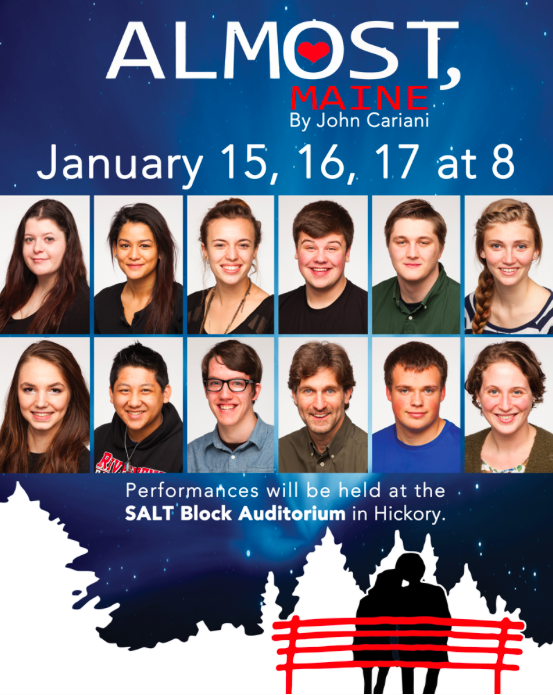(UPDATE: Victory! Read Howard Sherman’s excellent summary of the case.)
In late October, NCAC mobilized its partner organizations to pressure school officials in North Carolina’s Maiden High School to reinstate a cancelled production of Almost, Maine. Complaints about “They Fell”, a same-sex vignette in the play, came from parents and local church groups alike. Facing pressure from these groups about perceived assaults on the town’s values, the administration conceded, canceling the play for its “sexually-explicit overtones and multiple sexual innuendos”. (Our friend and partner Howard Sherman writes that the school has not, in fact, picked a play to replace the production.)
The affected students – the Main Street Players – stood firm in the face of the cancellation. In protest, a number of them banded together with a former teacher in the district, Carmen Eckard, to figure out how to stage the play anyway. Circumventing the school’s controls over what students could and couldn’t perform, the Main Street Players began a Kickstarter campaign to mount the play at a local playhouse.
Their efforts weren’t in vain. Within weeks, they far surpassed their goal of $1,000, raking in over six times that number. Only a fraction of the proceeds will go to staging the play itself. In the spirit of good giving, the players have decided to give the remainder of the money to Arts Council of Catawba and LGBTQ advocacy and charity group OutRight Youth Catawba.
The new production of Almost, Maine will now take place in mid-January at SALT Block Auditorium, located in the neighboring town of Hickory. It’ll be co-directed by the original student director Conner Baker and Bill Morgan, the latter of whom is a local attorney who previously directed the play in a nearby community theater. The cast from the original high school production remains mostly intact.
The students’ perseverance to stand for basic principles of artistic freedom is admirable. As we noted in our recently-released drama toolkit, some schools just aren’t willing to budge when it comes to play cancellations, even when they’re faced with condemnation from outside groups. As a result, a useful, inventive tactic for resisting such cases of censorship is to figure out alternative ways of staging the play, especially at local venues. Such a move is especially powerful on a symbolic level, showing schools that students won’t, in fact, back down when hit with censorious pressure.


